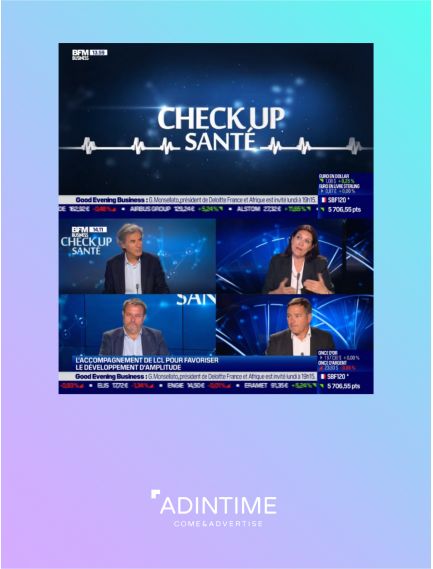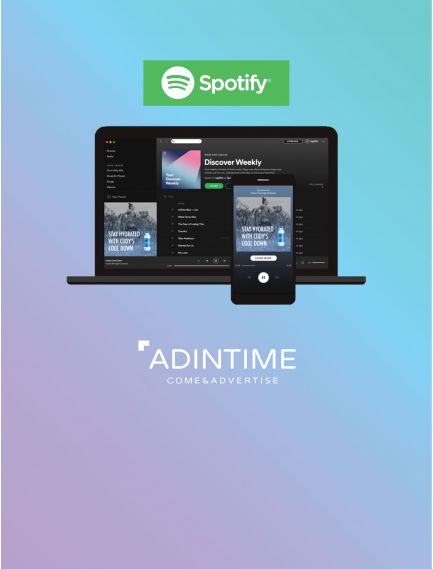As you know, advertising for the healthcare sector is subject to strict legal and ethical rules: French advertisers are free to promote their healthcare products and services, but they must ensure that they respect the interests of patients and public health. Depending on the product or service being promoted, advertisers must comply with specific guidelines. Let's take a look at the rules to be observed when advertising for health.
For the sake of clarity, this article will focus on health promotion aimed at the general public.
>>> Discover all our promotional solutions for the healthcare sector
Article summary: Advertising for healthcare
- Is healthcare advertising allowed in France?
- Medication promotion in France
- Promoting a healthcare product in France: medical devices and in vitro diagnostic medical devices
- Promoting medical services
Is healthcare advertising allowed in France?
Advertising for the healthcare sector is authorized in France, both for healthcare products and medicines, and for healthcare professionals. Nevertheless, it is tightly controlled to protect patients and public health in general. These rules vary according to the product or service being promoted:
- medicines
- medical devices
- the practice of healthcare professionals
Medication promotion in France
Whether subject to prescription or over-the-counter, medicines can be advertised in France to healthcare professionals or the general public. This advertising is closely supervised by ANSM, the French National Agency for Medicines and Health Products. The ANSM is the only body in France capable of controlling and issuing advertising authorizations or visas, a compulsory document for communicating about a health product.
There are a few general rules to follow when communicating about a health product, whatever its nature or the audience it is aimed at:
- it must promote the proper use of the drug;
- it must not induce bad prescribing or use habits, but must comply with HAS (Haute Autorité de Santé) recommendations;
- it must not be misleading;
- it must not present a danger to public health.
Promoting medications to the general public
Medicines may only be advertised to the general public when they are not subject to compulsory medical prescription and are not reimbursed by the health insurance scheme.
Such advertising can use any communication medium (TV, radio, billboards, press, etc.) and must be accompanied by a cautionary message advising people to consult a doctor if symptoms persist.
Regardless of the medium used, drug advertising must be approved by the ANSM before it is broadcast.
Promoting a healthcare product in France: medical devices and in vitro diagnostic medical devices
Medical devices (dispositifs médicaux or DM) and in vitro diagnostic medical devices (dispositifs médicaux de diagnostic in vitro or DMDIV) are no exception to the rule: their advertising is also controlled, and much of it is subject to authorization by the ANSM.
But what is a medical device? Quite simply, it's a healthcare product that can be used for the prevention, control, diagnosis, treatment or alleviation of an injury or illness. Examples include hearing aids, eyeglasses, bandages, self-tests, orthopedic inserts and more.
Advertising for reimbursable medical devices
French legislation authorizes advertising for certain reimbursable medical devices: class I and IIa medical devices (such as syringes without needles, hemostatic dressings and thermometers). Their advertising does not have to be filed with the ANSM, but is subject to a posteriori control.
For other reimbursable medical devices (class II b and III: dialysis machines, hip joint prostheses, etc.), advertising to the general public is strictly forbidden.
Advertising for non-reimbursable medical devices
The advertising of non-reimbursable medical devices to the general public is authorized and follows the same rules as for reimbursable DM: it is subject to a posteriori control and does not need to be submitted to the ANSM.
However, when medical devices are included on the list of medical devices presenting a significant risk to human health, advertising must be controlled prior to distribution.
Advertising for in vitro diagnostic medical devices
Two rules apply to the advertising of in vitro diagnostic medical devices:
- advertising is subject to prior control
- a request for prior authorization must be submitted to the ANSM
Promoting medical services
Yes, even healthcare professionals are authorized to use all available communication tools to pass on health, educational or scientific information to the public: flyers, social networks, websites, etc.
Can healthcare professionals use advertising to promote their services?
Healthcare professionals can use advertising to promote their services. But it's only since Decree no. 2020-1662 of December 22, 2020 that they can freely communicate "by any means, including on a website, information likely to contribute to the patient's free choice of practitioner, relating in particular to his professional skills and practices, his career path and the conditions of his practice". (free translation of “par tout moyen, y compris sur un site internet, des informations de nature à contribuer au libre choix du praticien par le patient, relatives notamment à ses compétences et pratiques professionnelles, à son parcours professionnel et aux conditions de son exercice”.)
This decree was put in place to bring French legislation into line with European law, as until then, France prohibited all players in the healthcare sector from engaging in any form of promotion, whether direct or indirect.
Which healthcare professionals are authorized to advertise?
The possibility of using advertising concerns all healthcare professionals:
- physicians,
- dental surgeons
- nurses
- midwives,
- chiropodists,
- physiotherapists
What rules must healthcare professionals respect when advertising?
In order to avoid any abuses and to protect patients and public health, healthcare professionals must abide by a few rules when promoting their services:
- be cautious when communicating;
- advertising must not undermine the dignity of the profession;
- professionals must not compare themselves;
- the use of third-party testimonials is prohibited;
- the public must not be misled.
In short, health advertising is strictly controlled by French legislation. It is therefore essential to proceed with caution in your communications, and to check that the product or service you wish to promote falls well within the imposed guidelines.



 Top 30 best ads musics
Top 30 best ads musics
 The influence of advertising on purchasing behavior
The influence of advertising on purchasing behavior
 Top of the most listened podcasts in France
Top of the most listened podcasts in France
 Top 30 best ads 2021 in France
Top 30 best ads 2021 in France
 This Year Marketing Calendar
This Year Marketing Calendar
 OOH Advertising: My honest review
OOH Advertising: My honest review
 Facebook Ads Library: The ultimate guide to winning campaigns
Facebook Ads Library: The ultimate guide to winning campaigns
 How to prepare your advertising campaigns for Christmas?
How to prepare your advertising campaigns for Christmas?
 The top 20 ad films of the year
The top 20 ad films of the year
 Example of a unique selling proposition
Example of a unique selling proposition












